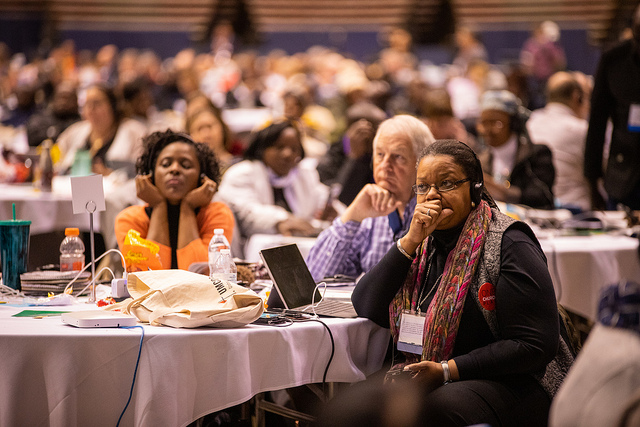
Delegates to the 2019 General Conference on Monday advanced a plan that would strengthen restrictions on same-gender unions and “self-avowed practicing” gay clergy, rejecting proposals to remove language from the Book of Discipline declaring the practice of homosexuality as “incompatible with Christian teaching.”
Acting as the Legislative Committee, delegates approved an amended version of the Traditional Plan and declined to support the One Church Plan, the Connectional Conference Plan and the Simple Plan.
While the Traditional Plan is the only broad-based proposal guaranteed to come up for a vote when delegates convene in plenary session as the General Conference, the other plans could be revived from the floor of Tuesday’s session – albeit as longshots to gain approval from delegates who already have rejected them by solid, if not overwhelming, majorities.
Bishop L. Jonathan Holston, resident bishop of the South Carolina Conference, described the day’s session as “exhausting, but enlightening.”
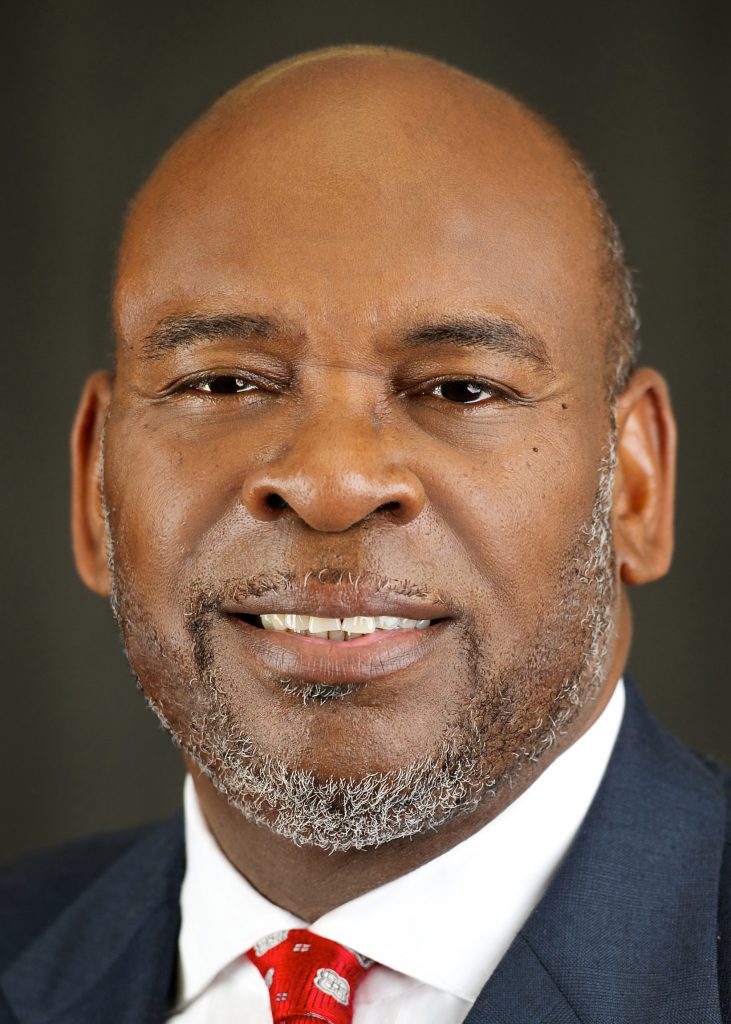
“We knew today was going to be a difficult day,” Bishop Holston said. “It’s always like that when delegates are doing the work they have been called to do. You have a lot of energy around that and you want to make sure that you are heard.
“Our delegates knew they were here to do the work around issues that have been challenging and complex and have divided our church and divided people in so many ways. It was exhausting, but it was enlightening because people had a chance to share who they were.”
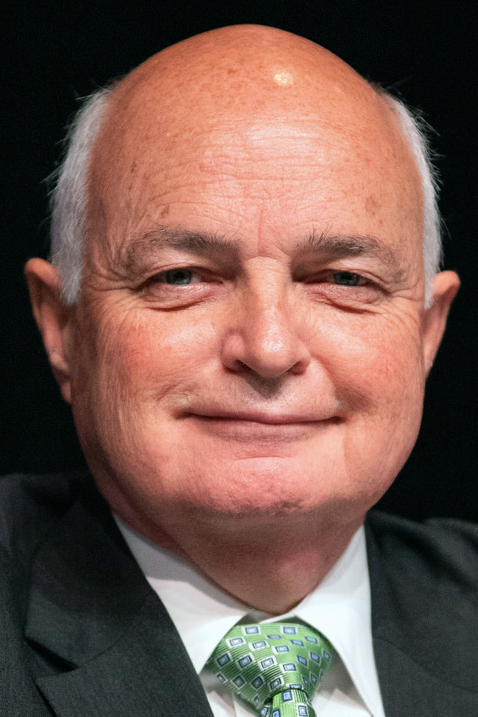
The Rev. Dr. Tim McClendon, pastor of St. John’s United Methodist Church in Aiken, said he appreciated the “graceful listening” practiced by all delegates.
“We are all over the map in terms of theology, and that’s a blessing,” said Rev. McClendon, who is chairperson of the South Carolina delegation. “That’s the strength of the United Methodist Church, our diversity, and that’s the weakness of the UMC, our diversity.”
“But, somehow, we always try to work it out.”
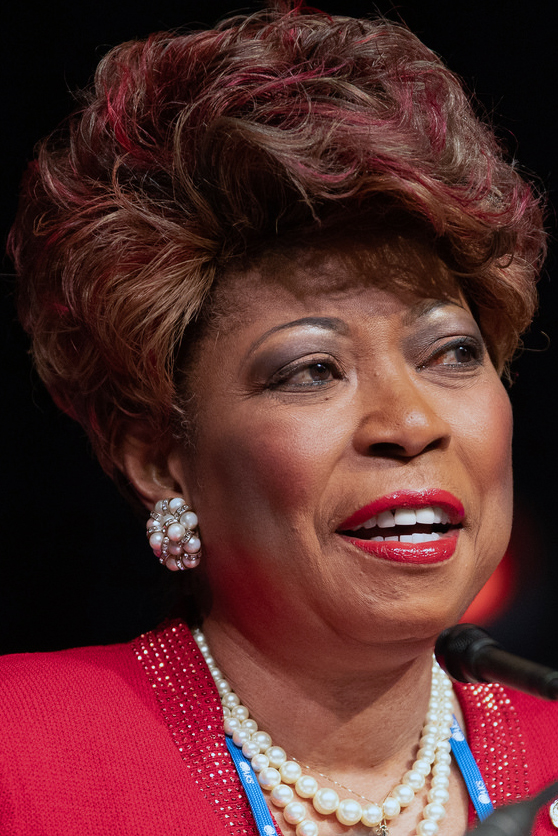
Jackie Jenkins, a lay delegate who is the conference director of Lay Servant Ministries, expressed mixed emotions about the outcome of Monday’s series of votes.
“My heart is sad because there are some people who will leave here hurt,” she said, “but I celebrate that we stand firm on the Gospel.”
The Rev. Mel Arant, pastor of Pendleton United Methodist Church, said Monday’s session showed how emotional the issues at hand are for him, his fellow delegates, and for all United Methodists.
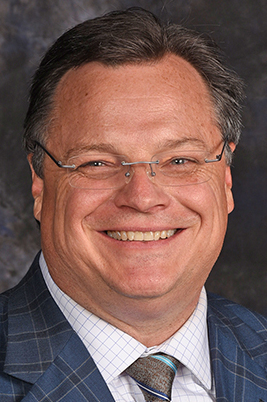
“Everyone is trying to find a way to honor their calling, their understanding of ministry, their understanding of scripture, their understanding of God,” Rev. Arant said. “It’s clear that there is no consensus among our leading laity and clergy.
“For each, something very personal, very spiritual, is at stake. Whenever God’s children struggle to find consensus or common ground upon which to live together in ministry and witness, it’s hard, emotional – even painful.”
The Rev. Ken Nelson, a delegate and conference secretary, said it was emotionally draining to see “that we are in different places in the church on this issue,” even though “we knew that coming in.”
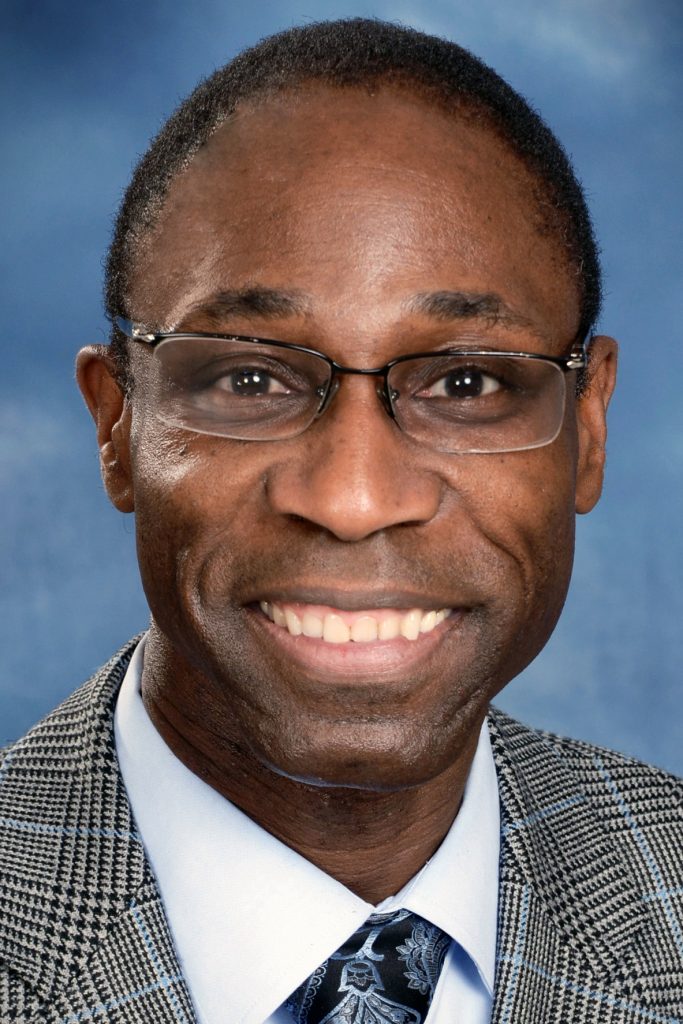
“We always have to find a way for people to ask, “How am I living in relationship with God and my neighbor?’” Rev. Nelson said. “In that regard, what we knew coming in is still true – that God is still God, and that the church is still a place where people are coming to seek right relationship with God and with one another.
“I think local churches in South Carolina have to keep asking how we are making the ministry of Jesus Christ relevant for all, and how we are making a difference in the world.”
Bishop Holston asked South Carolina United Methodists to continue to pray for delegates, for those most affected by the decisions made by the General Conference and for the mission of the church.
“I will continue to ask people in South Carolina to understand that we have differences of opinion on this particular issue, but to remember that there are so many other ways in which we are together,” Bishop Holston said. “So let’s not let this be the thing that divides us on the whole. There is so much more that we do together than we could ever do separate from each other.
“That’s what we have to take away from this General Conference – yes, it was about issues surrounding human sexuality, yes we will come out with people having to agree to disagree – but there is so much more that God has called us to do.”
Also heading for votes on Tuesday are two separate petitions that, with certain limitations, would allow churches to depart with their property, and petitions dealing with how pension and benefit accruals would be handled if clergy opted to leave the denomination.
